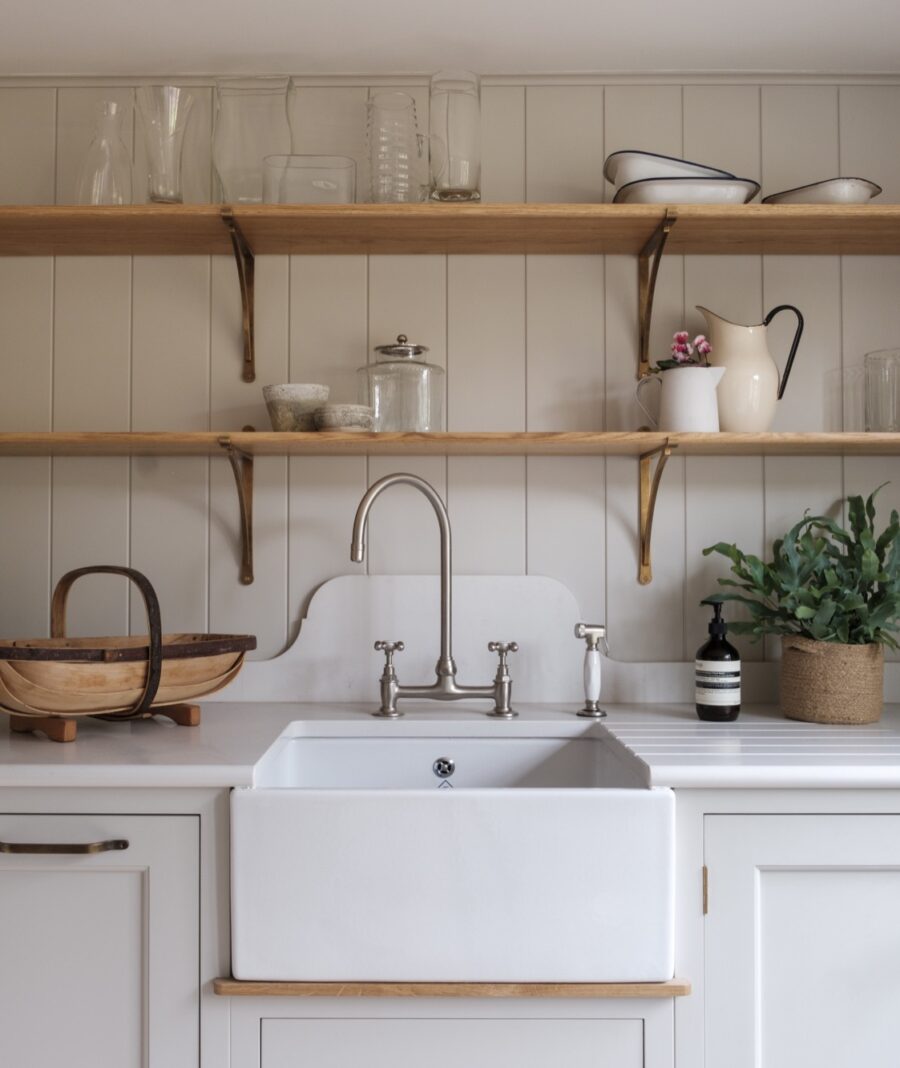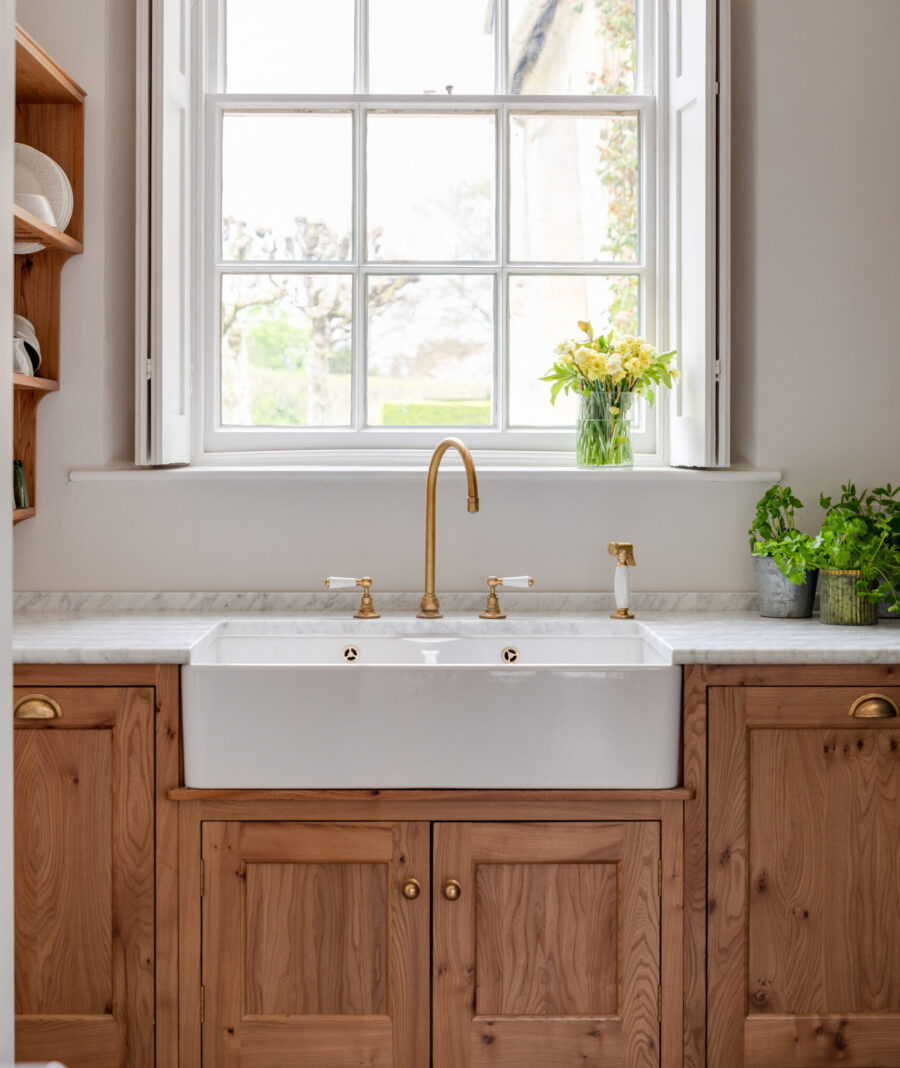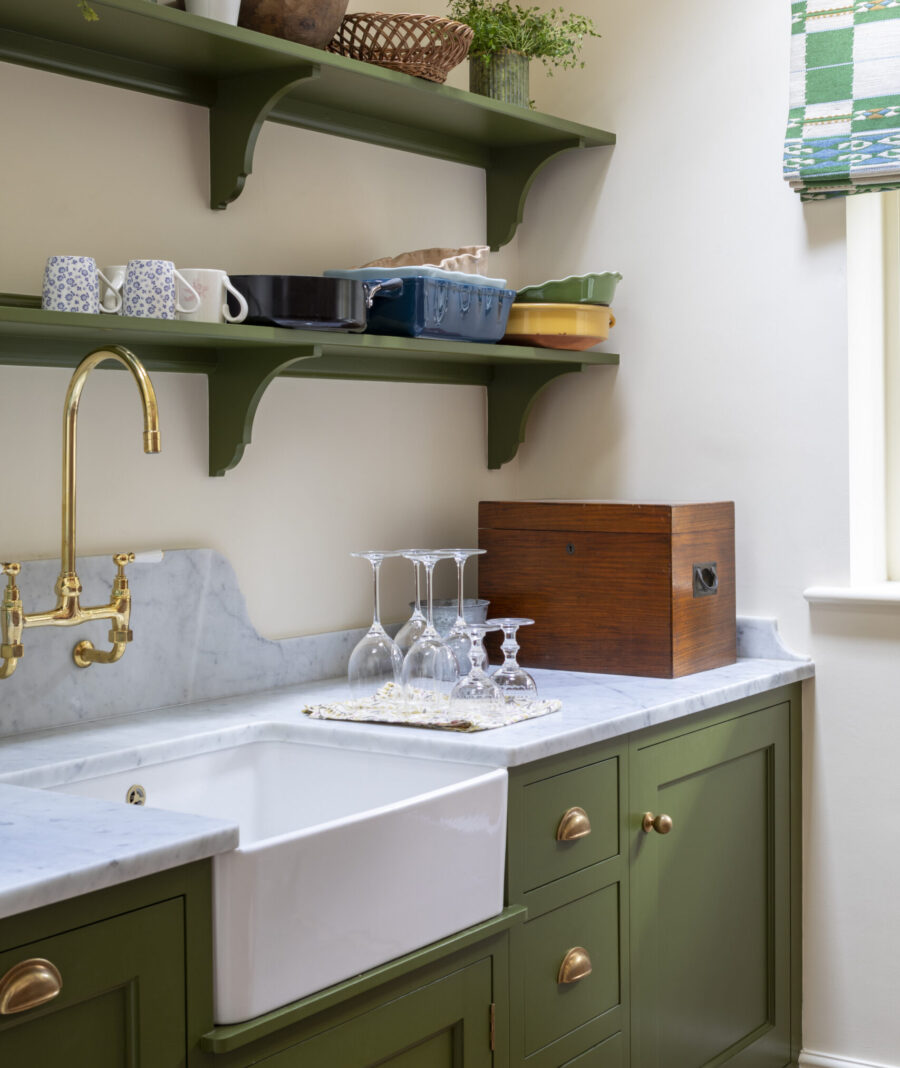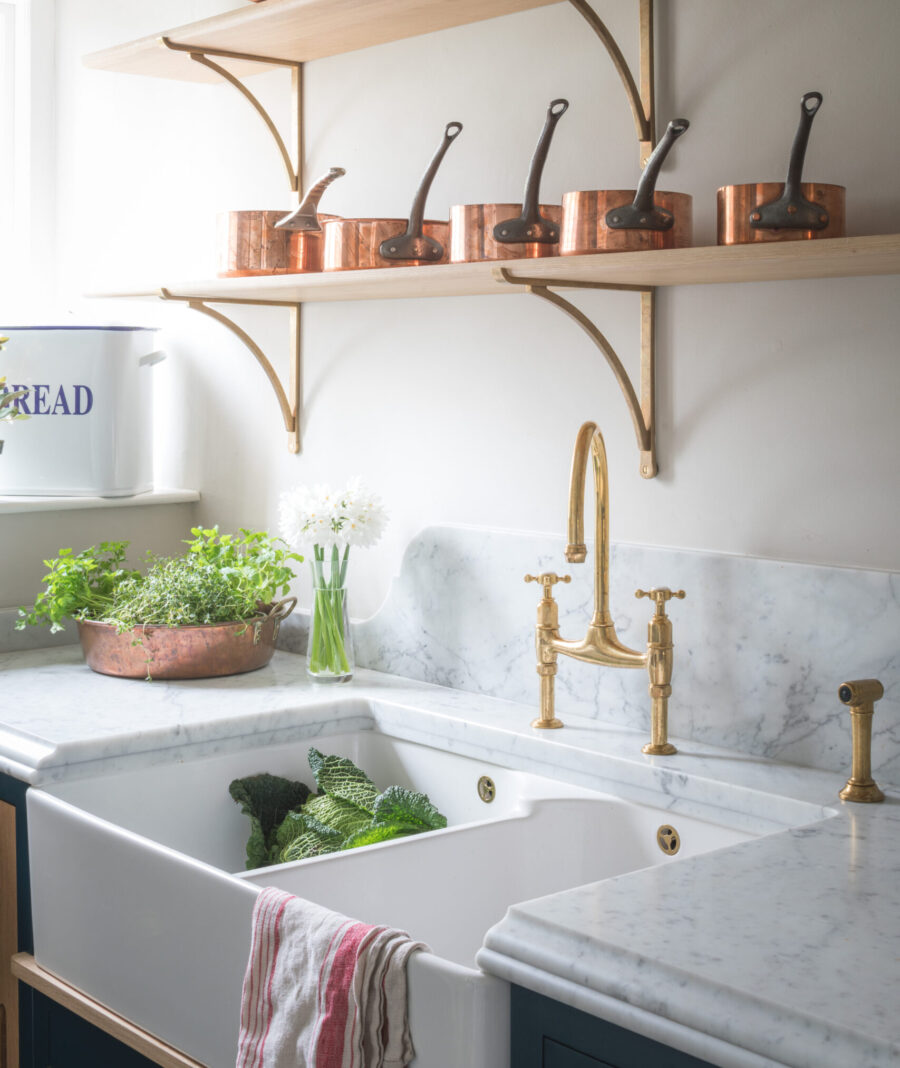Journal
What are the differences between the two styles of traditional kitchen sinks?
Butlers Sink vs Belfast Sink
March. 2023
We explore the Butlers sink vs Belfast sink, what are the differences, if any?
We find clients are often overwhelmed with choice when considering the design of their kitchen. There are many appliances and gadgets to consider, but one which has stood the test of time is the kitchen sink. Within our portfolio we use a range of sink styles that suit each kitchen design uniquely.
Traditional in style, and similar in appearance, both the Belfast and Butler sink offer an appealing aesthetic when designing your bespoke kitchen, creating an attractive and practical focal point.
Belfast vs Butler sink - which came first?

THE BUTLER AND BELFAST SINK HAVE BOTH BEEN AROUND SINCE THE VICTORIAN ERA
The Butler’s sink was originally designed for a butler’s pantry in London. In Victorian London, fresh water was far less readily available than it is today. Lying inland from the sea, London water had to be collected from deep wells which was extremely laborious and wasting water was frowned upon. Hence the design of the Butler’s sink was shallow and wide and did not include an overflow; it needed to conserve water.
Belfast is a coastal city, with an abundance of water. So the Belfast sink was designed with a deeper bowl and with a weir overflow so that any excess water could be removed easily, allowing taps to flow freely. Like a Butler sink, Belfast sinks were primarily used by butlers offering very large bowls for washing vegetables, washing dishes and cleaning household items.
As problems with London’s water supply were addressed, the Belfast sink design became increasingly the popular choice with its deep bowl and overflow design.
Although synonymous with country house kitchens, these sinks were originally designed for city living

THE MANUFACTURING PROCESS IS LARGELY UNCHANGED SINCE THE VICTORIAN ERA
Traditionally constructed using fireclay ceramic, both the Belfast and Butler styles are heavy duty and super durable. Fireclay, which is a blend of clay and glaze, it’s scratch, stain and heat resistant. It also resists cracks and it doesn’t chip making it an excellent choice for all domestic spaces.
With a recent resurgence in the popularity of traditional apron fronted kitchen sinks, Belfast and Butler sinks are now available in fireclay ceramic, as well as other materials such as stainless steel, copper and marble.
Today they are manufactured using a single or double bowl, and available in different depths. There are choices where to place an overflow, attach a plug, or position the drain, and variations can also include bow fronted and fluted details.
MANUFACTURED USING TIME HONOURED TECHNIQUES THAT HAVE BEEN PASSED DOWN FROM MASTER CRAFTSMEN TO APPRENTICE FOR WELL OVER A CENTURY

ALTHOUGH SYNONYMOUS WITH COUNTRY HOUSE KITCHENS, THESE SINKS WERE ORIGINALLY DESIGNED FOR CITY LIVING
If you now own a modern home, a traditional farmhouse or period property, these sinks not only look good, they are durable and practical too. Perfect for kitchens, laundry rooms, flower rooms and boot rooms, they offer large bowls big enough to cope in any family kitchen dealing with large pots, pans and roasting dishes.
Within the kitchen design they are set beneath the work surface, but flush with the neighbouring cabinets, they suit most kitchen styles. With their large format, durability, and a nod to traditional design, they offer the perfect solution for all domestic rooms in your home.
There are many appliances and gadgets to consider, but one which has stood the test of time is the kitchen sink.

PREFERRED SUPPLIERS OF BUTLER’S AND BELFAST SINKS
Shaws of Darwen; with a a rich history spanning over 125 years. When Shaws of Darwen was founded at the end of the 19th century, they had a vision – to make the finest handcrafted fireclay sinks in the whole of England. Shaws has been producing fireclay sinks by hand in North West England since 1897. Every one of their beautiful and practical sinks has the name of the Master Craftsman who created it stamped on its base, a personal guarantee of quality.
Villeroy & Boch are celebrating 275 years this year. Since 1748, Villeroy & Boch has been synonymous with quality and upmarket aesthetics, and with forward-looking ideas and techniques for ceramics.


